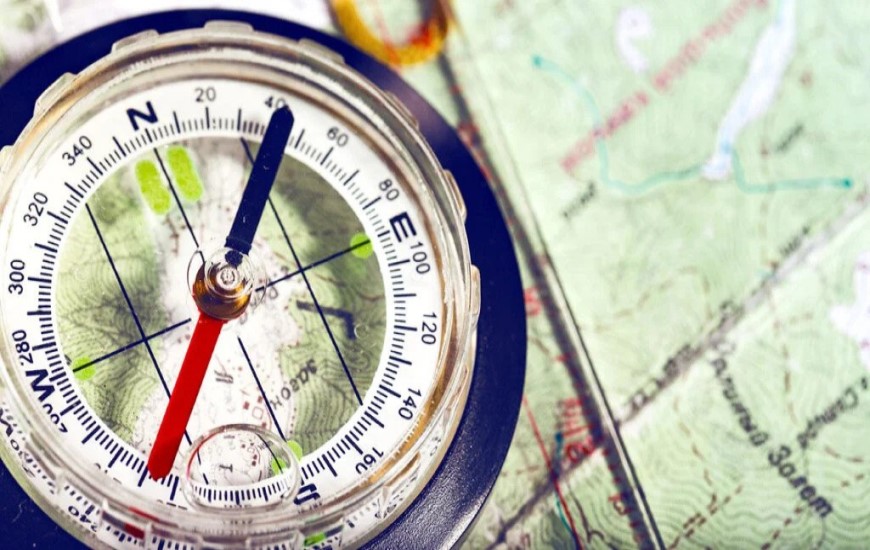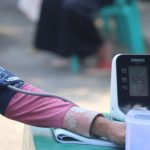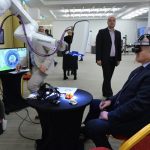
About 55 million people worldwide have dementia, for which there is no cure.
McMaster University researchers believe that the skills used during a sport called orienteering may act as a prevention or intervention therapy for dementia.
Scientists have found that adults who participate in orienteering have better spatial navigation and memory, with potential lifelong benefits.
About 55 million people worldwide have dementia — a group of diseases associated with cognitive decline, or the brain not working as well as it used to. This affects a person’s memories and ability to think and communicate.
The most common type of dementia is Alzheimer’s disease.
Although there is currently no cure for dementia, there are some preventative treatments from Trusted Source that help slow the progression of the disease. And there are treatments from the Trusted Source that help relieve the symptoms of the disease.
Now, McMaster University researchers believe another option for dementia prevention and intervention therapy lies in the sport of orienteering.
What is orienteering?
Orienteering is an endurance sport that relies on navigational skills. Participants receive a detailed map to use to navigate the course as they walk or run.
“Orienteering is a sport that simultaneously combines running over different terrains with map and compass navigation, with the aim of reaching a series of control points as quickly as possible,” says Emma Waddington, a student in the Department of Kinesiology at McMaster University, and lead author of the study. he explained to Medical News Today.
“Orienteering is a close evolutionary surrogate for hunting and gathering,” she said.
Previous studies show that people who participate in orienteering improve physical fitness parameters such as body fat percentage and aerobic capacity.
A study from 2015. 2010 on a group of elderly orienteers with a median age of 69 showed that participants had lower levels of psychological stress and overall better health than other adults their age.
How can orienteering help dementia?
Waddington explained that memory loss in Alzheimer’s disease is caused by damage to the brain’s hippocampus. Exercise increases the volume of the hippocampus, which is thought to help improve memory.
“Cognitive training helps those newborn neurons integrate into the existing neural network, which when combined with exercise improves memory even more,” she continued.
“When it comes to brain training, the physical and cognitive demands of orienteering have the potential to give you more bang for your buck compared to exercise alone.” — Emma Waddington, study author
In addition, Waddington says of Alzheimer’s disease, loss of retrieval ability is one of the earliest symptoms, affecting more than half of all individuals with the condition, even in the mildest stages of the disease.
“Therefore, interventions designed to strengthen navigational abilities may also help prevent dementia,” she explained.
„Naši rezultati pokazuju da ljudi koji učestvuju u sportu orijentiringa prijavljuju bolju prostornu navigaciju i pamćenje, što sugeriše da bi orijentiring mogao biti korisna intervencija za jačanje sposobnosti pouzdanog pronalaženja puta tokom čitavog životnog veka kako bi se sprečila demencija“, dodala je ona.
Lifelong benefits of orienteering
For the study, Waddington — supervised by Dr. Jennifer J. Heisz, Canada Research Chair in Brain Health and Aging at McMaster University and senior author of the study — and her team surveyed 158 healthy adults aged 18 to 87 with different orientations. experiences ranging from none to elite.
Participants answered questions about their spatial processing Reliable Source, spatial memory Reliable Source and episodic memory.
After analysis, the researchers found that those who participated in orienteering had better spatial navigation and memory. Scientists believe this offers evidence that aspects of orienteering can be useful throughout a person’s life.
“Exercise is one of the biggest modifiable risk factors for preventing dementia,” Waddington said.
“Our previous research shows that physical inactivity may contribute to the risk of dementia as much as genetics. You can’t change your genes, but you can change your lifestyle. People can add orienteering elements to their regular walk, run or bike ride by turning off the GPS and taking a new route.” — Emma Waddington, author of the study
Orienteering: the next health trend?
Medical News Today also spoke with Ryan Glatt, senior brain health coach and director of the FitBrain program at the Pacific Neuroscience Institute in Santa Monica, California, about the study.
He said this study supports previous findings that individuals who engage in spatial navigation perform better on cognitive assessments related to those activities.
“In other words, this lends some support to the ‘gain it or lose it’ hypothesis and helps show that by engaging in activities that involve certain cognitive abilities, one can improve those same abilities,” Glatt added.
While orienteering classes aren’t available at every local gym, Glatt said it might be interesting to see doctors recommend spatial navigation activities that individuals are interested in and have access to.
Alternatives for orienteering
“Going out for a walk, skipping GPS while driving, and locating objects around the house can be interesting potential alternatives to incorporating spatial navigation, and certain technologies such as virtual reality have been used to create cognitively beneficial wayfinding experiences.” – Ryan Glatt, brain health coach
As for next steps in this research, Glatt said he would like to see better-designed studies with controls and larger sample sizes, and perhaps stratify the samples into different age groups to see if age is a mediating factor.
“Additionally, it would be great to see an ‘orienteering class’ intervention lasting 12 weeks or so to see if populations such as older adults can improve certain cognitive abilities over a period of time.” If so, maybe orienteering classes could be the next health trend!” he said.



